
Why Communication Skills Matter in the Workplace and How to Improve Them
Whether you’re managing a team, working with clients, or simply collaborating with colleagues, communication is at the heart of it all. As someone balancing multiple roles, I’ve learned firsthand just how crucial strong communication skills are to getting things done efficiently, building relationships, and avoiding misunderstandings.
The reality is, communication isn’t just about what you say or write. It’s about how effectively you convey and understand messages—whether it’s in a meeting, a report, or an email. In the workplace, the ability to communicate clearly can make or break your job performance and success. It builds credibility, fosters collaboration, and ensures that everyone is on the same page. So how can you develop these skills, and how can they help you stand out in your job search? Let’s dive in.
What Are Communication Skills?
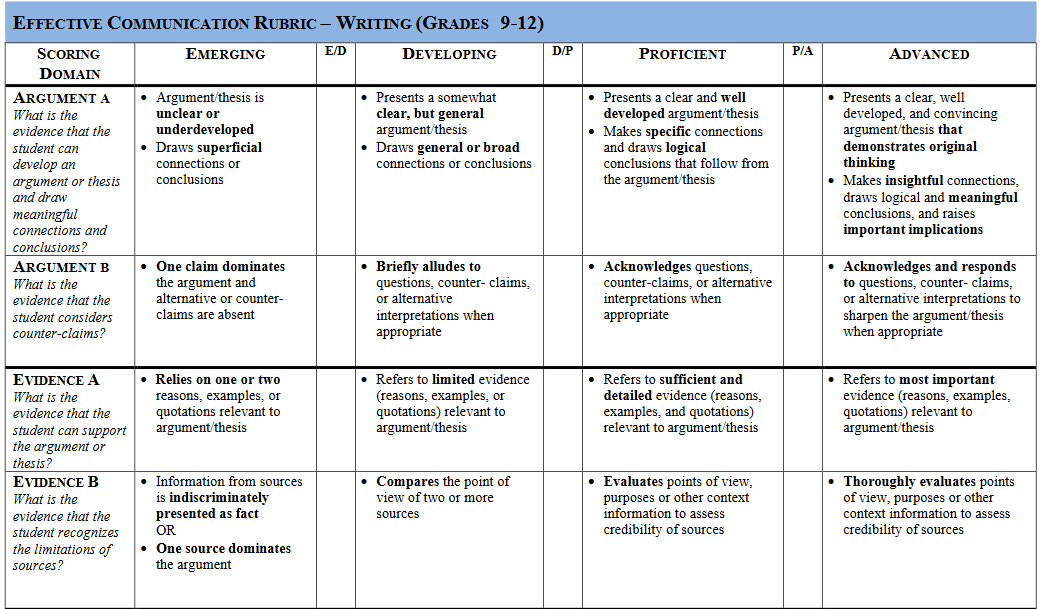
Communication skills refer to the abilities, knowledge, and traits that help you both share and understand information. These skills are essential for collaborating with colleagues, speaking with clients, and working in any role that requires exchanging ideas.
Simply put, good communication is what enables you to explain your thoughts clearly, listen actively, and ensure that everyone involved understands each other. Strong communication skills not only keep things running smoothly in the workplace, but they can also elevate your professional image, leading to better opportunities and career advancement.
Common Types of Communication in the Workplace
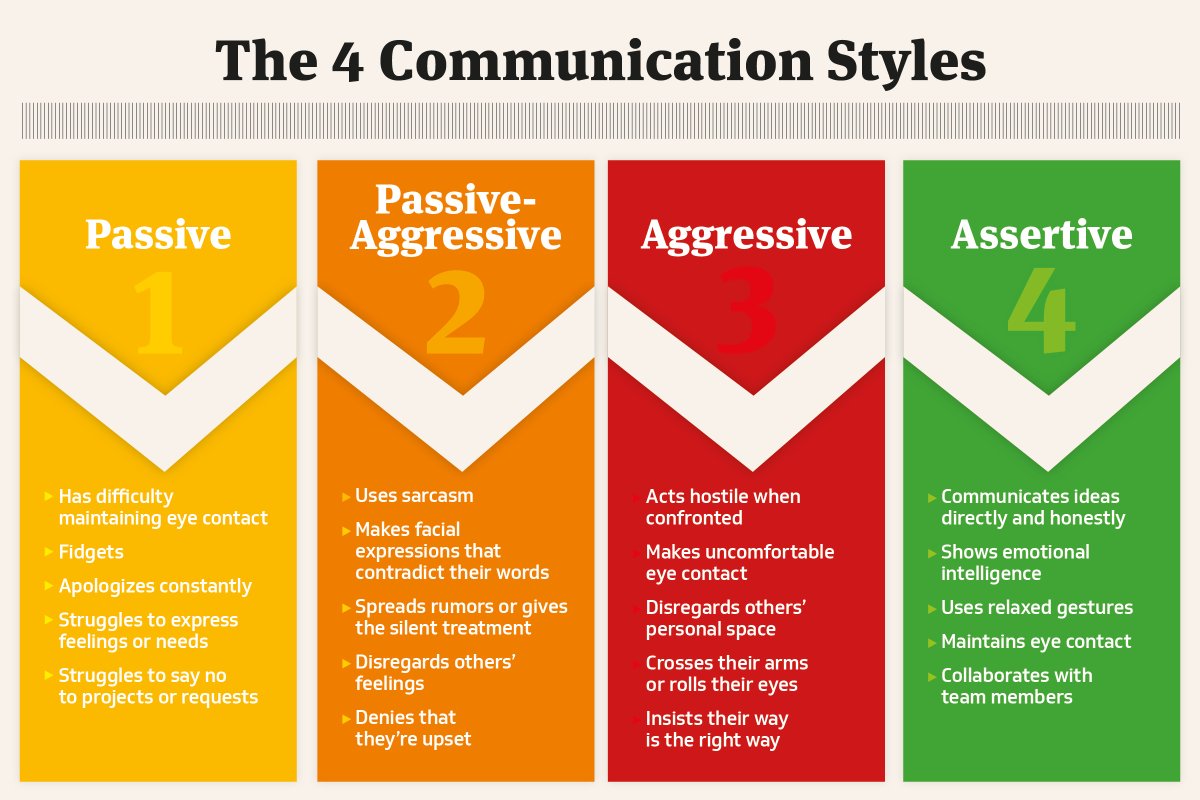
Communication can take many forms, depending on the medium and situation. Here are the four main types you’ll encounter at work:
1. Verbal Communication

This is the spoken word: whether face-to-face, on the phone, or via video chat. Verbal communication involves both speaking and listening. And while we often focus on what we say, it’s just as important to pay attention to how well we listen. Listening helps you absorb and respond to what others are saying, ensuring you don’t miss key details.
2. Nonverbal Communication

Nonverbal cues are messages we convey without words. These include body language, facial expressions, posture, tone of voice, and even how we dress. The way you position yourself in a conversation, for instance, can affect how your message is received.
3. Written Communication

This is communication via text, which can range from emails and reports to social media posts and instant messages. In today’s digital age, your writing is often your first impression, so it’s important to get it right. Clarity, tone, and structure are key to conveying your message effectively.
4. Visual Communication
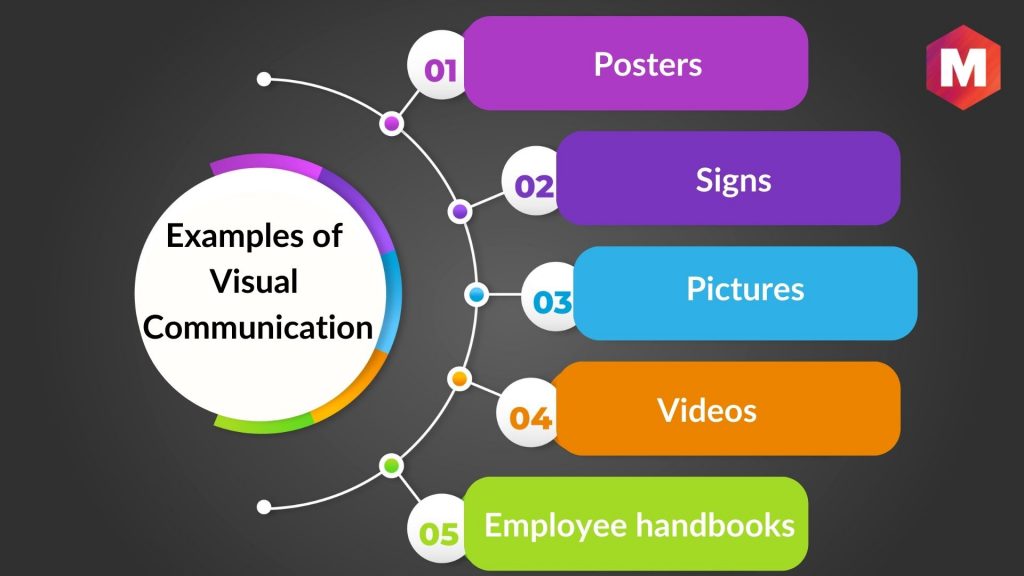
This includes the use of images, graphs, charts, and other visual elements to convey information. Whether you’re preparing a presentation or simply explaining a concept visually, effective visual communication can help make your message clearer and more engaging.
8 Key Communication Skills for the Workplace
%20(1).webp)
To be an effective communicator at work, you’ll need to master various skills. Here are eight essential ones:
1. Active Listening
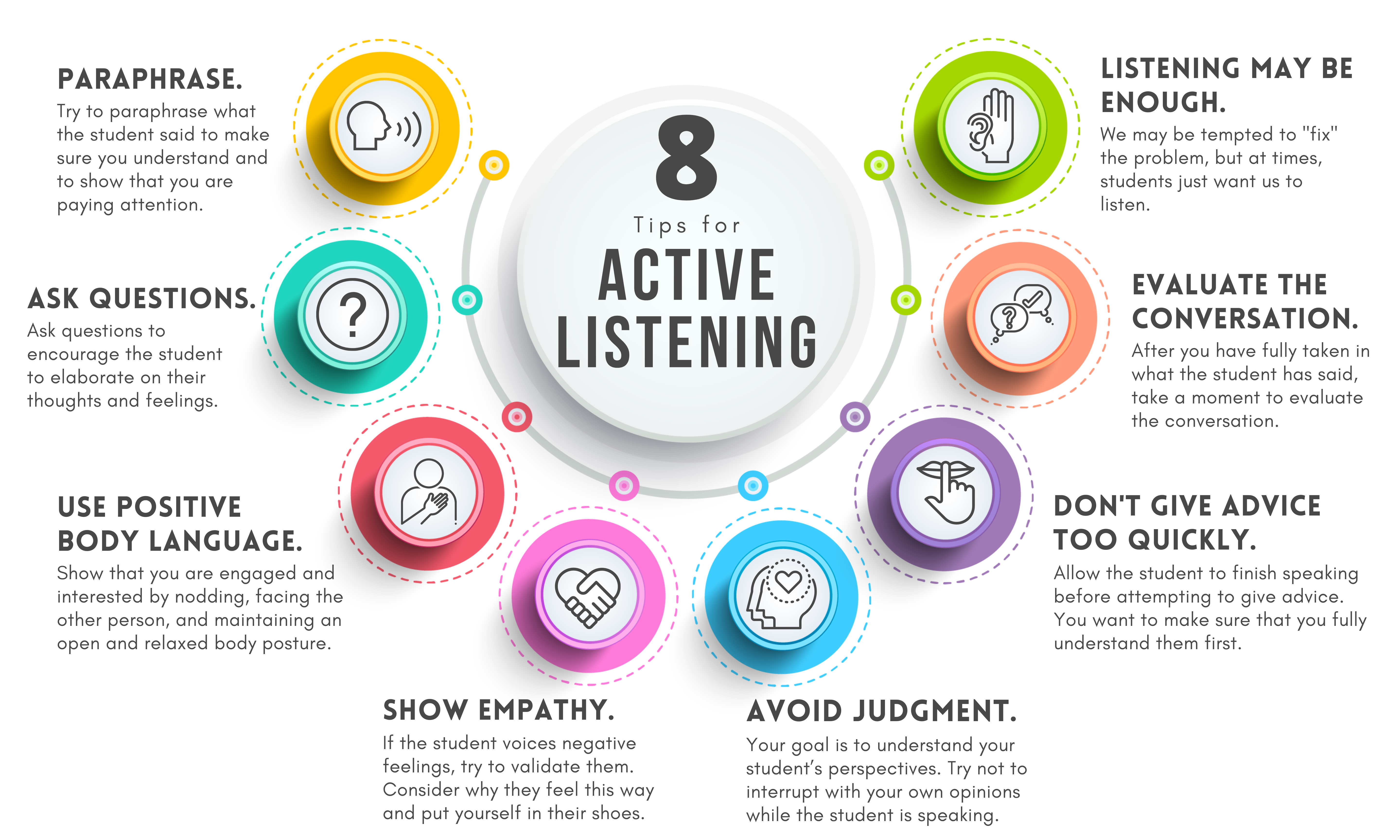
Active listening is more than just hearing words—it’s about truly understanding what the other person is saying. By giving them your full attention, you not only show respect, but also reduce the chance of miscommunication. This means focusing on their words, body language, and tone. Ask questions if necessary and paraphrase to ensure you’ve grasped their meaning.
2. Clarity

Clear communication is essential to avoid misunderstandings. Before speaking or writing, ask yourself what you want the recipient to take away from the conversation. Are you providing an update, making a request, or resolving an issue? Be concise, direct, and avoid jargon that might confuse your audience.
3. Audience Awareness

Knowing your audience is crucial. Tailor your message to who you’re speaking to—whether that’s your boss, a coworker, or a client. For example, you might speak differently with your team than you would with a client or upper management. Consider their perspective, background knowledge, and communication preferences when crafting your message.
4. Choosing the Right Communication Method and Tone

Choosing the right method for communication—whether verbal, written, or visual—depends on the situation and your audience. Should you send an email or schedule a call? If it’s a sensitive topic, would a face-to-face meeting be better than an impersonal email? Be mindful of the tone you use as well—be formal if the situation calls for it, or casual if appropriate.
5. Emotional Intelligence and Empathy

Emotional intelligence (EQ) is your ability to understand and manage your emotions, as well as those of others. This skill is essential in workplace communication. Empathy helps you build stronger relationships, defuse conflict, and foster a positive work environment. Recognizing others’ emotions and responding appropriately can make a huge difference in your interactions.
6. Constructive Feedback

Being able to give and receive feedback in a constructive way is essential for personal and professional growth. When offering feedback, focus on being clear, specific, and solution-oriented. Rather than criticizing, provide actionable steps for improvement. When receiving feedback, stay open, listen actively, and consider how it can help you improve.
7. Body Language Awareness
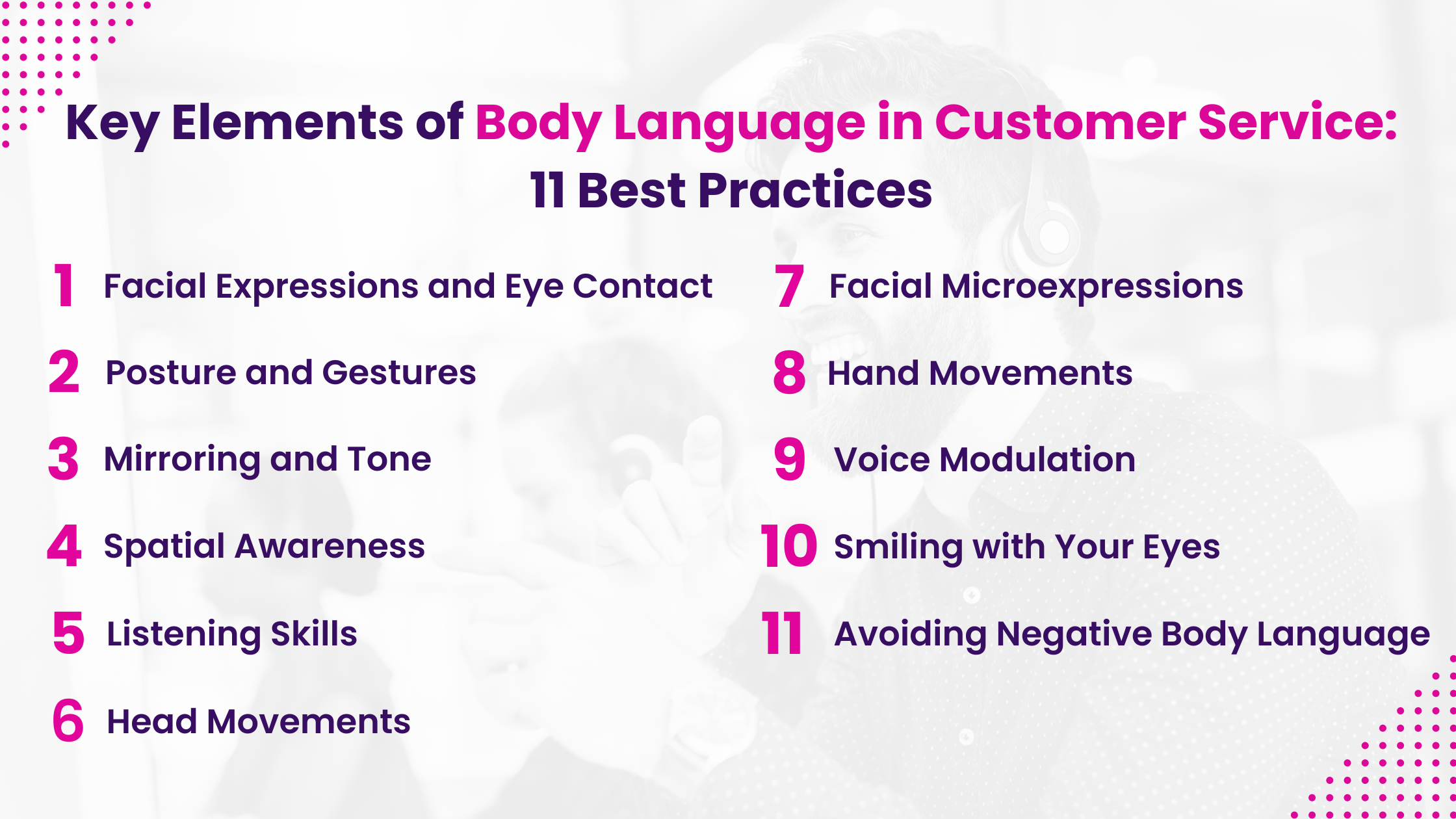
Your body language speaks volumes—sometimes even more than words. Make sure your posture, facial expressions, and gestures align with your message. If you’re communicating frustration or impatience through body language, it can derail the conversation, even if your words are positive. Be aware of how you come across, and adjust as necessary.
8. Presenting and Public Speaking

Whether it’s presenting a project update to your team or speaking at a company meeting, public speaking is a vital communication skill. To succeed, make sure your message is clear and your visuals are effective. Practice your delivery, engage with your audience, and stay confident. The more you practice, the more comfortable you’ll become.
How to Improve Your Communication Skills
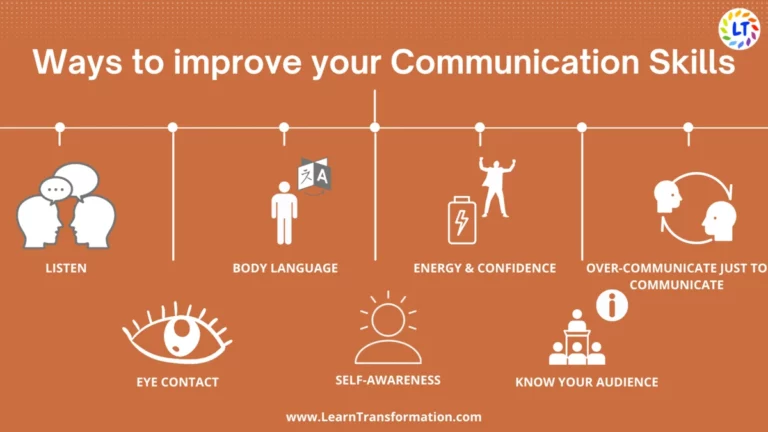
If you want to become a better communicator, here are some practical tips to help you along the way:
- Identify Areas to Improve: Focus on one aspect of communication at a time—whether that’s becoming a better listener or writing more clearly. Ask for feedback from coworkers, friends, or mentors to pinpoint where you can improve.
- Seek Feedback: It’s always helpful to get feedback from others. Ask colleagues or friends to critique your communication, and listen openly to their suggestions.
- Take Courses or Work with a Coach: Many online courses and workshops are designed to help professionals improve their communication skills. Alternatively, working with a coach can provide you with personalized strategies to communicate more effectively.
- Practice: Communication is a skill, and like any skill, it gets better with practice. Look for opportunities to speak, write, or collaborate more often. The more you do it, the more comfortable and effective you’ll become.
- Learn About Communication Challenges: Take the time to educate yourself on the challenges others face when it comes to communication—especially in diverse work environments. Understanding these obstacles will help you become a more inclusive and empathetic communicator.
How to Showcase Your Communication Skills During a Job Hunt

Employers value strong communication skills, so it’s important to highlight them during your job search. Here’s how to showcase your communication abilities:
- Tailor Your Resume and Cover Letter: Be sure to include specific examples of how you’ve used your communication skills in your past roles. Whether it’s managing team meetings, presenting to clients, or collaborating with different departments, quantify your impact to show how your communication skills contributed to the success of the team.
- Use the Interview to Highlight Your Skills: Interviews are the perfect opportunity to demonstrate your communication abilities. Use clear, concise answers and share examples of your communication successes. Whether it’s managing difficult conversations or presenting a complex idea, make sure you communicate your strengths through specific stories.
- Showcase Your Writing Skills: For roles that require strong writing skills, such as marketing or content creation, make sure to include writing samples in your application or portfolio. Show your ability to write clearly and effectively.
- Practice Active Listening in the Interview: Don’t just focus on what you’re saying—actively listen to your interviewers, ask insightful questions, and respond thoughtfully. This will demonstrate your ability to communicate effectively and engage in meaningful conversations.
FAQs
1. How can I improve my communication skills?
Focus on one skill at a time, such as active listening, clarity in writing, or public speaking. Practice these skills regularly, and seek feedback from others to continuously improve.
2. Why are communication skills so important at work?
Strong communication skills help you convey your ideas clearly, collaborate with others, and reduce misunderstandings. They also improve your professional relationships and contribute to a positive work environment.
3. How can I demonstrate communication skills during a job interview?
Prepare specific examples from your previous roles where you demonstrated strong communication. Whether it’s in managing teams, giving presentations, or collaborating on projects, make sure you provide concrete examples to show your communication strengths.
4. What types of communication should I focus on in the workplace?
It depends on your role, but verbal communication, active listening, written communication, and body language are key to almost every workplace interaction. Adjust your focus based on your specific job requirements and goals.
5. How do I know if I need to work on my communication skills?
If you frequently face misunderstandings, feel unheard, or struggle to express your thoughts clearly, it’s a sign that communication skills could use improvement. Ask for feedback from colleagues or supervisors to get a clearer idea of where you can grow.
Conclusion: Communicate to Succeed
Mastering communication skills is key to success in almost every job and industry. Strong communication ensures you can convey your ideas clearly, collaborate effectively with others, and navigate the challenges of your work environment. Whether you’re working on building stronger relationships with your team, communicating with clients, or presenting your ideas to leadership, these skills can help you excel.
Investing in improving your communication skills will not only enhance your performance but also set you apart in your career journey. So start practicing and refining these skills today, and watch how they positively impact both your professional and personal life.

